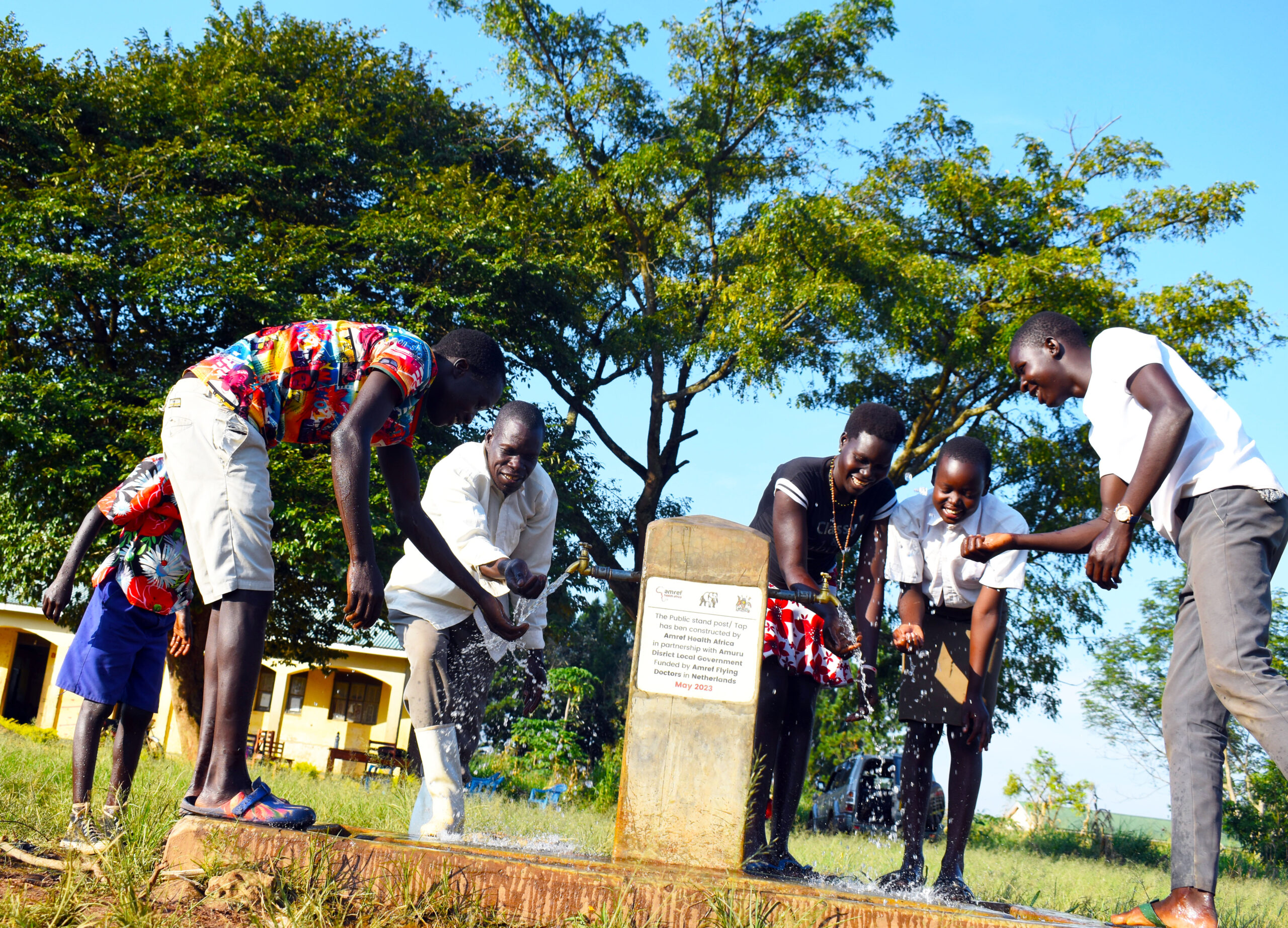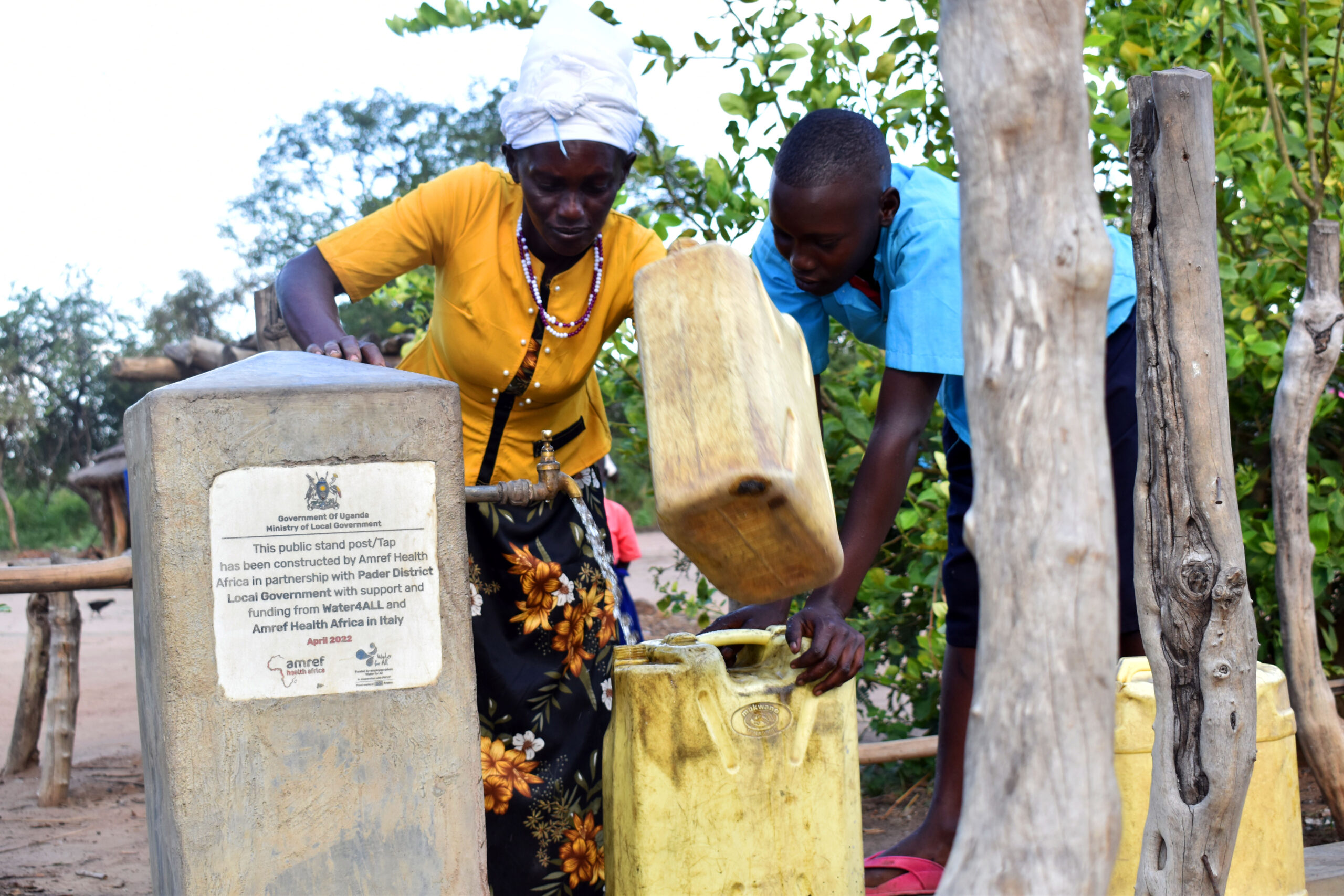Eliminating Distance as a Barrier To Health: Easing Access to SGBV Services.
Wednesday, 8 January, 2025

My name is Otieno Ronald, a peer educator attached to Mulombi HC II in Mutumba sub-county, Namayingo district. For the past four years, I have worked with the Heroes for Gender Transformative Action programme, dedicating my efforts to addressing teenage pregnancies, promoting family planning, and ensuring survivors of Sexual and Gender-Based Violence (SGBV) can access health services through the innovative E-Voucher system.
However, one persistent challenge had always been long distances. Bridging the gap between remote communities and health facilities was a daunting task, often hindered by high transport costs. This changed in late 2023, when World Bicycle Relief provided 300 Buffalo bicycles to Community Health Workers, including me, across Bugiri, Namayingo, and Iganga districts.
The Transformative Power Of A Bicycle
The Buffalo bicycle has revolutionized how I serve my community. Previously, I would spend significant sums of money traveling to island communities for outreach programs and referrals. For example, traveling just 2 kilometers from Bukimo-A to Mulombi HC II for community outreach would cost me about 6,000 UGX round-trip. Given that I facilitate two integrated outreaches per month in each of the three parishes of Mulombi sub-county, my monthly transport expenses often exceeded 80,000 UGX—far surpassing my facilitation allowance of 50,000 UGX.
Today, thanks to the Buffalo bicycle, these costs are no longer a barrier. Beyond saving on transportation, the bicycle enables me to carry essential learning materials and outreach items with ease. What’s more, my daily productivity has tripled. Previously, I could only manage five home visits in a day; now, I visit up to 15 households, providing sensitization and health education to last-mile communities.
Beyond Peer Education: Saving Lives
This bicycle has proven invaluable in emergency situations. On one occasion, I used it to transport a community member in urgent need of medical care to the nearest health facility, ensuring they received timely treatment. Additionally, it simplifies follow-ups to guarantee that patients, especially survivors of SGBV, recover fully and regain their health.
“Previously, only 8-10 SGBV cases were reported monthly. Now, we get over 40,” the data clerk for Mulombi HCII notes. This increase reflects greater awareness and trust in health systems, facilitated by peer educators like Ronald.
The Role Of The E-Voucher System

The E-Voucher referral system has been a game-changer in ensuring SGBV survivors, particularly women and girls, can access comprehensive services at no cost. Piloted in Bukwo, Kween, Budaka, and Namayingo districts, the E-Voucher system connects survivors to 24 health facilities across six districts in Eastern Uganda.
This system prioritizes confidentiality and youth-friendly approaches, making it easier for young people to access critical services and information. By leveraging peer-to-peer engagement, the program fosters trust and encourages greater utilization of youth-friendly services.
In my role as a peer educator, the Buffalo bicycle is more than a mode of transport—it is a lifeline, a tool for empowerment, and a catalyst for change. Combined with the Heroes programme and the E-Voucher system, it ensures that distance is no longer a barrier to health services for the most vulnerable.
Heroes For Gender Transformative Action
The Heroes for Gender Transformative Action programme addresses sexual and reproductive health and rights (SRHR) barriers in nine high-burden districts in Uganda. Implemented by Amref Health Africa, Cordaid Uganda, and Mifumi, the programme empowers young girls, boys, and women to make informed SRHR decisions and take a stand against SGBV—a severe manifestation of gender inequality that affects health outcomes. Running from November 2020 to November 2026, the programme seeks to transform lives through empowerment and awareness.
World Bicycle Relief and Buffalo Bicycles
Buffalo Bicycles, a subsidiary of World Bicycle Relief, is driving change through the power of bicycles. These durable bicycles are tailored for rugged terrains, designed to empower healthcare workers like me to deliver services effectively and transform lives in underserved communities.
Story and photos by Daphine Ayebare
Amref Health Africa teams up with African communities to create lasting health change.



